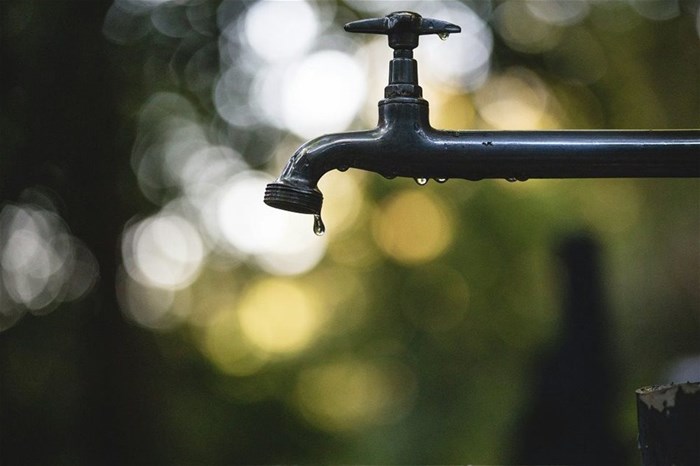Addressing South Africa’s water scarcity is everyone’s responsibility

For some smaller towns and villages, Day Zero is already a reality. More than 140,000 households around QwaQwa in the Free State, for example, have had dry taps for many months, with others only having occasional access to water. While low dam levels have played a role, so have ageing infrastructure, load shedding, and unmet maintenance requirements.
Those kinds of issues aren’t restricted to rural towns and villages either. Johannesburg, which sits at the centre of South Africa’s economic heartland is in the midst of its own water crisis. Thanks to a lack of maintenance and infrastructure investment, it’s experienced several major outages over the past few years. The most recent one left millions of residents without water for days at a time.
Those infrastructural issues will only exacerbate the impacts of climate change. And for South Africa, those impacts will be significant. According to ESI Africa, South Africa is expected to officially become a water-scarce country by 2025 and will have a water deficit of 17% by 2030. Increased temperatures will also increase demand for crop irrigation, further straining the country’s water resources.
Not just about dry taps
Even when water is in abundance, many communities still struggle to access safe, clean drinking water. Despite the considerable gains made since the advent of democracy, 19% of rural South Africans lack access to a reliable supply of water.
“For most of us, clean, fresh, running water is a few steps away,” says Lauren Gillis, Founder of The Relate Trust, a non-profit that raises money for charities globally and creates jobs for the underprivileged. “But for women in rural South Africa, getting water is a long, and often dangerous walk every single day. Women in villages across SA walk approximately 6 km to collect water from open sources for their families each day. This water is often contaminated. They then need to walk back with 20-25 litres of water on their heads.”
The lack of access to clean water results in many difficulties, including issues with health, education, gender equity, and economic development. Lack of safe water and poverty are mutually reinforcing; access to consistent sources of clean water is crucial to poverty reduction. Conversely, states the World Health Organisation (WHO), having safe drinking-water, sanitation, and hygiene helps to create resilient communities living in healthy environments.
The time spent gathering water also results in many lost economic opportunities. Access to safe water at home turns time spent into time saved, giving families more time to pursue education and work opportunities that will help them break the cycle of poverty.
Women are disproportionately affected by the water crisis, as they are the ones responsible for collecting water. This takes time away from work, school, and caring for the family. The lack of water locks women in a cycle of poverty. When women have access to safe water in taps close to their homes, they can pursue more beyond water collection and their traditional roles - they have time to work and add to their household income. Children are also often responsible for collecting water for their families. Globally, access to safe water and reductions in time spent collecting water have also been found to increase school attendance, affording the opportunity for a brighter future.
While local, provincial, and national arms of government are taking measures to address both scarcity and availability, there is no doubt that more needs to be done. And, adds Gillis, fixing these issues cannot fall solely on the shoulders of the government.

Playing our part
“Businesses and other organisations, as well as individuals, also have a role to play,” she says. “The most obvious way of doing so is to implement waterwise technologies and behaviours but we can also make a significant difference in other ways.”
One need only look at the measures taken by many businesses in Cape Town during the worst of its drought, including low-flow taps and grey-water systems to see how rapidly water usage can be improved. Many Cape Town homes also now boost rainwater tanks which can be used to fill swimming pools and water gardens.
As a result of these and other water-saving initiatives, the city went from using 1.2 billion litres of water a day to 516 million litres a day by 2018. While the number had risen back up to 807 million litres a day by 2023, it still demonstrates what’s possible through a sustained collective effort.
Running and walking for water
For Gillis and Relate, another way of making a difference is through a walk/run event which aims to build a sustainable solar water system that will bring clean, running water to 4,000 people for the rest of their lives.
The event forms part of Relate Water, which is a subsidiary of the trust, with each entrant’s registration of R300 to the virtual walk/run event buying safe, clean, running water for one person for the rest of their life.
To ensure that this is possible, Relate Water has partnered with the South African arm of Innovation Africa. It builds sustainable solar-powered water systems that pump clean water into taps throughout the villages. The process involves drilling for water, building the water tower, installing solar panels, raising a water tank, digging trenches for piping, and constructing taps throughout the village. The community are involved every step of their way and 10 people in each village are upskilled,which makes them employable. They also then manage any future maintenance problems
“Relate has always been focused on creating opportunities and changing lives. The sun exists; water exists. Yet so many people are suffering,” says Gillis. “Water is a need and a right and the gift of clean, running water is huge. It creates employment opportunities and liberates the women and children of the village, who bear the brunt of collecting the water. Beyond that, it drastically reduces the extent of illness and disease caused by consuming polluted water.”
- South African hoteliers: Your reality matters04 Nov 14:18
- 1st for Women wins Best in Service at the Ask Africa Orange Index Awards02 Oct 12:13
- Unlocking the economic potential within South Africa’s township economy26 Sep 11:18
- Beyond the hustle: The quiet revolution of women redefining strength and success in South Africa22 Sep 15:08
- Burnout is out: Reclaiming your right to exhale17 Sep 12:40

































